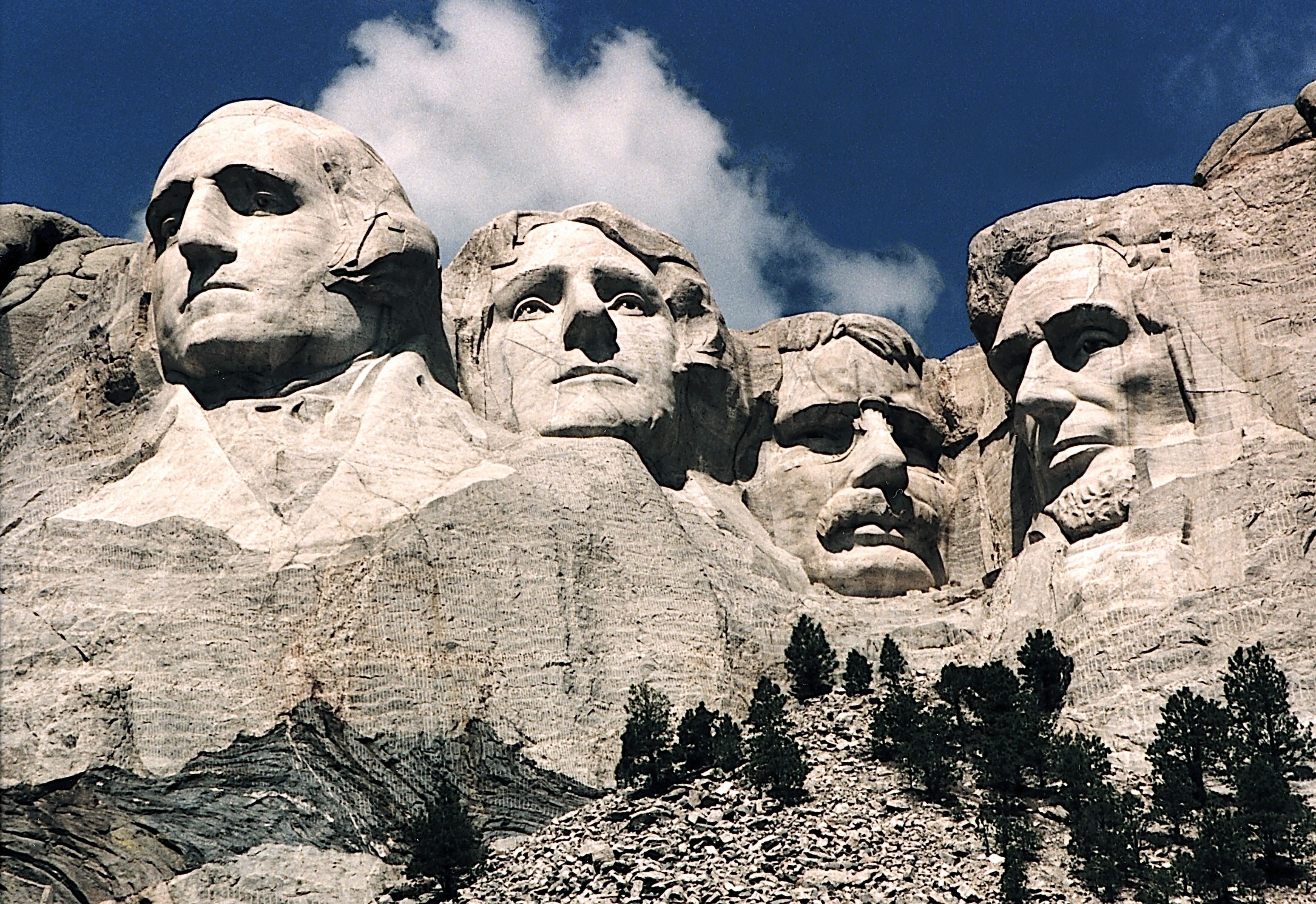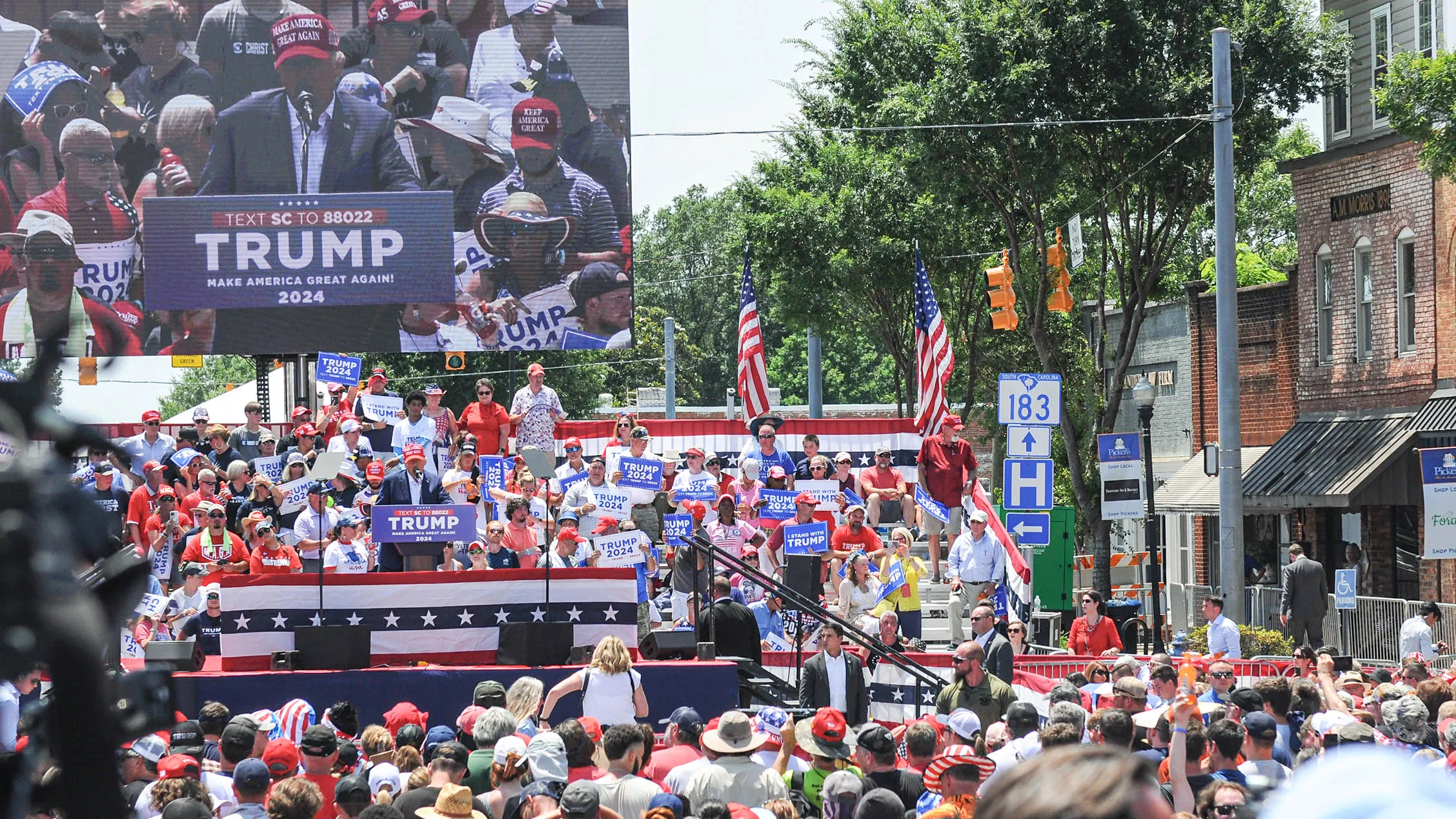The recent call by Republican Representative Andy Ogles of Tennessee, urging for former President Donald Trump to be immortalized on Mount Rushmore, is not just a whimsical suggestion; it"s a glaring indicator of the alarming direction the GOP is heading. This proposal, framed as a tribute to Trump’s so-called achievements, exposes a deep-seated loyalty that borders on authoritarianism and showcases a troubling disconnect from reality.
Mount Rushmore as a Symbol of Historical Significance
Mount Rushmore is more than a national monument; it represents the complex narratives of American history, including the injustices faced by Indigenous peoples. Originally, this land was sacred to the Lakota Sioux, and the carving of the four presidents—George Washington, Thomas Jefferson, Theodore Roosevelt, and Abraham Lincoln—was not just a tribute to their legacies but also a profound act of disrespect to the native populations. The idea of adding another figure, let alone Trump, raises critical questions about whose history we choose to celebrate and the values we wish to uphold.
Grassroots Loyalty to Trump Signals a Dangerous Trend
According to a recent survey, 79 percent of registered GOP voters still approve of Trump"s performance, despite the fact that this number has dropped from 86 percent just a few months prior. This loyalty is a troubling indicator of the party"s shift towards a cult of personality, where individual leaders are venerated rather than the principles of democracy and governance. Ogles" letter to Interior Secretary Doug Burgum, calling for Trump"s addition to Mount Rushmore as a reflection of "American greatness," exemplifies this disconcerting trend.
\n\n
Mount Rushmore National Memorial Fast Facts | CNN
The Legislative Context of Ogles" Proposal
This proposal comes in the wake of the passage of the "One Big Beautiful Bill," which includes significant tax cuts, military funding increases, and cuts to essential social programs such as Medicaid and food stamps. The bill"s passage by a narrow margin in the House (218 to 214) underscores the contentious political landscape where the Republican Party is willing to sacrifice the welfare of vulnerable populations to solidify their base"s loyalty to Trump. The $5 trillion increase in the U.S. debt ceiling that accompanies this bill raises serious concerns about fiscal responsibility, especially in a country still grappling with economic inequality.
Legal and Cultural Implications of Altering Mount Rushmore
The National Park Service has already indicated that any new carvings on Mount Rushmore would be impractical. However, the discussion around altering this national symbol reflects a broader cultural battle over who gets to define American identity. As reported by The Hill, Ogles claims that adding Trump would elevate the site"s dignity and relevance. This argument ignores the historical context of the monument and the ongoing struggles for civil rights among marginalized communities, particularly Indigenous peoples who continue to seek recognition and restitution for their historical grievances.
\n\n
Donald Trump 2024 Rally Schedule - Caresa Sisile
The Risks of Normalizing Authoritarian Nostalgia
Ogles" rhetoric, which compares Trump to iconic figures such as Washington and Jefferson, reflects a dangerous nostalgia that seeks to normalize authoritarian practices under the guise of populism. In his statements, Ogles suggests that Trump "did not seek his position for glory but out of love for his country," a narrative that conveniently overlooks Trump"s divisive policies and actions that have undermined democratic norms and civil rights. This narrative not only elevates Trump as a heroic figure but also diminishes the struggles of those who have fought for justice and equality in America.
As we witness the GOP"s attempts to reshape American history to fit a narrow ideological framework, it is imperative to critically examine the consequences of such moves. The effort to carve Trump"s face into Mount Rushmore is not merely a political stunt; it is a manifestation of a deeper malaise within the party and a challenge to the very foundations of democratic governance.



![[Video] Gunfire between Iraqi security forces and Sadr militias in Baghdad](/_next/image?url=%2Fapi%2Fimage%2Fthumbnails%2Fthumbnail-1768343508874-4redb-thumbnail.jpg&w=3840&q=75)
